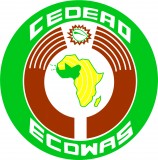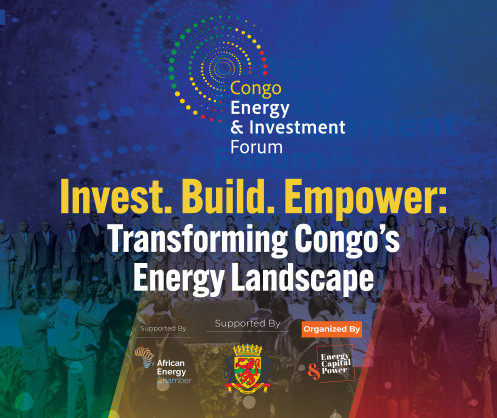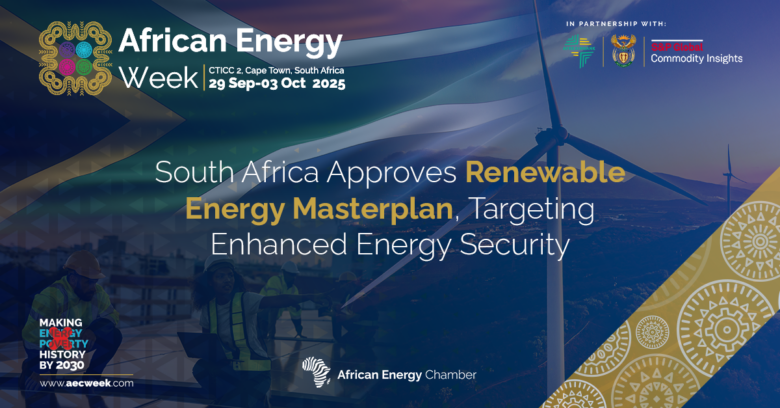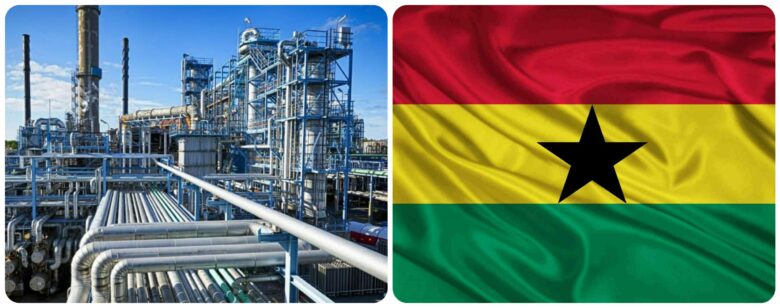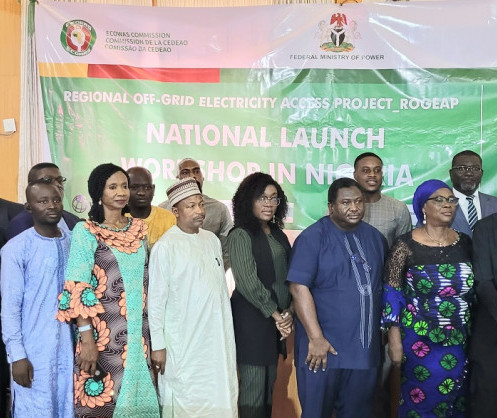
The primary two-fold aim of the workshop was to present the new structure of ROGEAP to actors concerned while rallying their active participation for the success of the project in Nigeria
ABUJA, Nigeria, July 22, 2022
The Regional Off Grid Electricity Access Project (ROGEAP) formally kicked off activities in Nigeria on Tuesday 19 July 2022, in Abuja. The event occurred at a workshop attended by representatives of the ECOWAS Commission, Nigeria’s Ministry of Power, and stakeholders from the public and private sectors including civil society organisations, NGOs, and commercial banks.
The primary two-fold aim of the workshop was to present the new structure of ROGEAP to actors concerned while rallying their active participation for the success of the project in Nigeria. In specific terms, participants at the workshop discussed the status of stand-alone solar systems, the institutional and legal framework for the stand-alone solar systems sector in Nigeria, planned activities in the context of ROGEAP, involvement of private businesses in the electrification of public buildings and infrastructure, and identification of the technical assistance needs of key actors in Nigeria.
Participants at the workshop included representatives of Nigeria’s Ministry of Power, financial institutions, technical and financial partner institutions, the civil society, private sector, and the press. The meeting was declared open by Engr Aliyu D Abubakar, Ag Director Renewable and Rural Power Access who represented Nigeria’s Minister of Power. In attendance were Mr Sylla Elhadji, ROGEAP Principal Advisor who represented Mr Sediko Douka, ECOWAS Commissioner for Infrastructure, Energy and Digitalisation.
Speaking on behalf of the new President of ECOWAS Commission, H.E Omar A. Touray, ROGEAP Principal Advisor and representative of the Commissioner responsible for Energy reiterated the main objectives and goals of the project and urged stakeholders in attendance to support the project’s implementation in Nigeria. “The goal of ECOWAS and its partners, through ROGEAP, is to assist Member States set up an enabling framework for the establishment of an off grid solar energy market and expand accessibility through broader private sector participation and funding,” stated Mr Sylla.
Renewable energy is available locally and may be harnessed for the purpose of power supply
Presiding over the session on behalf of the supervising minister, the Ag. Director of Renewable and Rural Power Access of Nigeria’s Ministry of Power recalled that sustainable development in our Member States was attainable solely through adequate power supply. “Renewable energy is available locally and may be harnessed for the purpose of power supply. This would minimise dependence on imported fossil fuels, and thus improve national power security, reduce petroleum importation costs and poverty. The idea behind ROGEAP is the provision of such solutions as will improve the living conditions of our population,” Engr Abubakar added, before he formally declared the workshop open.
There was a series of presentations at the workshop notably on national policy and regulation relating to the off-grid energy sector, a progress report on electrification, projects and programmes on off grid solar power systems in Nigeria. The participants then split into two working groups. The first group focused on the theme: “policy, norms, standards, and taxation regarding stand-alone solar products, identifying institutional obstacles that relate to policy and regulations, proposing guidelines for the formulation of norms and standards for stand-alone solar power systems and the introduction of exemption incentives for stand-alone solar products.”
The second group focused on the theme: “Private businesses and financial institutions, identifying obstacles to private investment in the off-grid power sector (stand-alone solar power kits), constraints in private sector access to funding from financial institutions (commercial banks and micro-finance institutions) and technical assistance needs.”
At the end of the workshop, several recommendations were made by the participants: (i) Improving on the institutional framework of Nigeria’s power sector by integrating legal provisions and incentives for off-grid electricity, (ii) introduction of quality standards to protect the off-grid energy market, (ii) capacity building of human capital and support for local industry development, and (iv) access to funding for the private sector in the form of reduced interest rates on loans.
As a reminder, the aim of ROGEAP is to increase access to sustainable solar energy services for households, businesses, public hospitals, and schools in the 15 ECOWAS Member States and in four other African countries (Mauritania, Central African Republic, Chad, and Cameroon). The USD338.7 million project is funded by the World Bank, Clean Technology Fund and Netherland Cooperation (DGIS).
Following the Nigeria launch, national workshops to launch ROGEAP will be organised in the coming weeks across the other 18 Member States concerned in its implementation.
